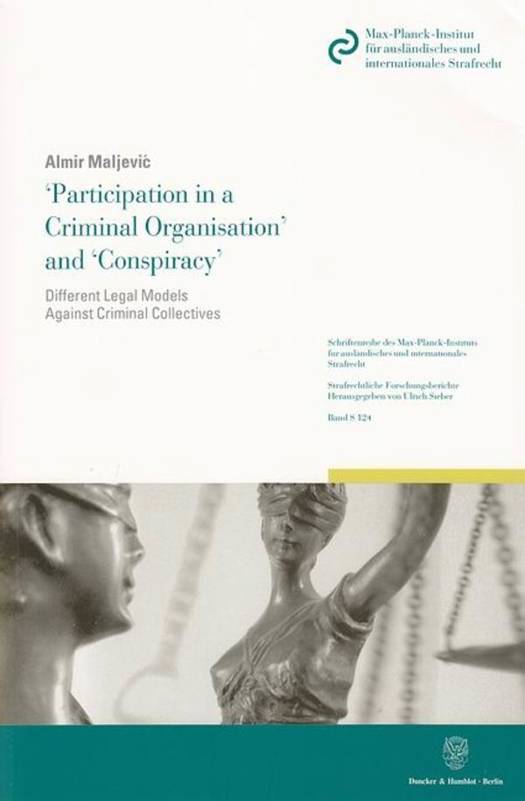
- Retrait gratuit dans votre magasin Club
- 7.000.000 titres dans notre catalogue
- Payer en toute sécurité
- Toujours un magasin près de chez vous
- Retrait gratuit dans votre magasin Club
- 7.000.000 titres dans notre catalogue
- Payer en toute sécurité
- Toujours un magasin près de chez vous
'Participation in a Criminal Organisation' and 'Conspiracy'
Different Legal Models Against Criminal Collectives
Almir Maljevic
Livre broché | Anglais | Schriftenreihe des Max-Planck-Instituts für ausländisches und internationales Strafrecht. Reihe S: Strafrechtliche Forschungsberichte | n° 124
30,95 €
+ 61 points
Description
The extension of criminalisation to include the early preparatory stages of the commission of criminal offences represents one of the most debatable issues in modern criminal law. In response to some of the most complex forms of crime usually committed by criminal collectives (such as terrorism, organised crime, or economic crime), different legal systems have developed diverse legal models to address the problem. All in all there are two main models. Countries of the continental criminal law tradition usually rely on the 'participation in a criminal organisation/association' model, whereas countries of the common law tradition utilise the 'conspiracy' model. These models, although having similar functions (to criminalise the early preparatory stages of the commission of criminal offences), are very different in their constitutive elements.
This book, for the very first time, explains the differences between the two types of models and points out the process of transfer of their elements from traditional models (Germany and England and Wales) to the international models (UN and EU), and furthermore to transitional models (Bosnia and Herzegovina, Croatia, and Serbia).
The author is of the opinion that the differences between the two types of models are such that they cannot be seen as viable alternatives in criminal law, as suggested by the international models. He therefore suggests that the fight against criminal collectives requires cumulative criminalisation using both models in order to be effective.
This book, for the very first time, explains the differences between the two types of models and points out the process of transfer of their elements from traditional models (Germany and England and Wales) to the international models (UN and EU), and furthermore to transitional models (Bosnia and Herzegovina, Croatia, and Serbia).
The author is of the opinion that the differences between the two types of models are such that they cannot be seen as viable alternatives in criminal law, as suggested by the international models. He therefore suggests that the fight against criminal collectives requires cumulative criminalisation using both models in order to be effective.
Spécifications
Parties prenantes
- Auteur(s) :
- Editeur:
Contenu
- Nombre de pages :
- 358
- Langue:
- Anglais
- Collection :
- Tome:
- n° 124
Caractéristiques
- EAN:
- 9783428135776
- Date de parution :
- 09-02-11
- Format:
- Livre broché
- Format numérique:
- Trade paperback (VS)
- Dimensions :
- 147 mm x 224 mm
- Poids :
- 4486 g







